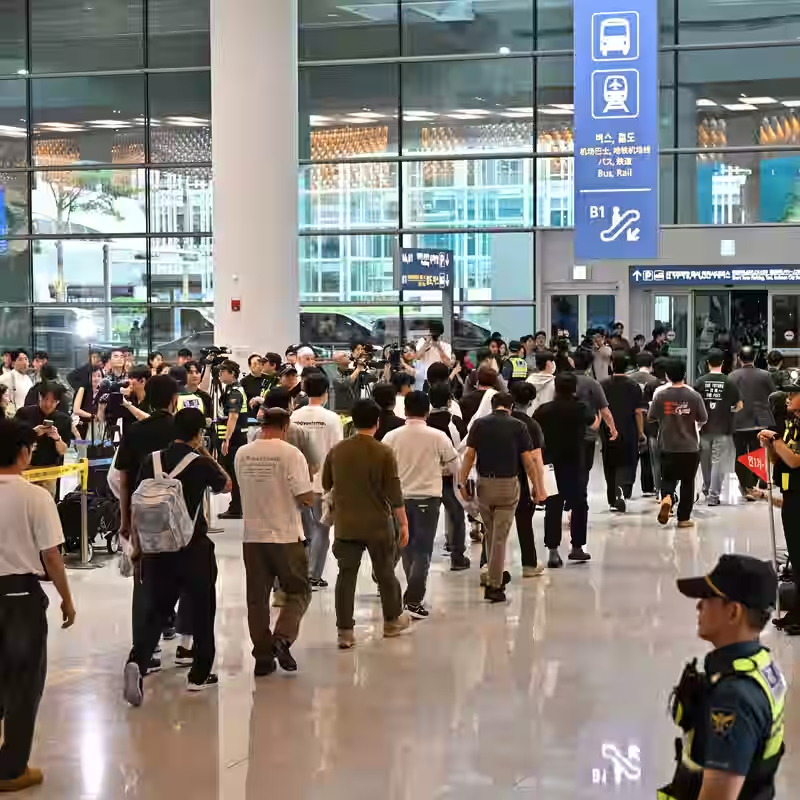U.S. Reverses Course Following Global Outrage Over Georgia Factory Raid
In a dramatic policy shift, the United States has eased visa restrictions for South Korean engineers after a controversial Immigration and Customs Enforcement (ICE) raid at a Georgia construction site sparked diplomatic tensions and global headlines.
What Happened in Georgia?
On September 4, 2025, ICE agents stormed an under-construction electric vehicle (EV) battery plant in Ellabell, Georgia—a joint venture between Hyundai Motor Group and LG Energy Solution. The raid led to the arrest of 317 South Korean nationals, most of them engineers, who were handcuffed and chained before being detained for a week.
The workers had entered the U.S. legally under B-1 business visas or the ESTA visa waiver program, believing their roles—installing and calibrating specialized machinery—were permitted under those classifications.

South Korean nationals detained during the September ICE raid in Georgia. (Credit: NYT)
New U.S.-South Korea Agreement: What Changed?
Following high-level talks in Washington on September 30, 2025, the U.S. State Department confirmed a critical clarification:
“Workers on B-1 or ESTA visas may now legally install, service, or repair equipment purchased from abroad to build foreign-owned factories in the U.S.”
Deputy Secretary of State Christopher Landau also announced a dedicated visa support desk at the U.S. Embassy in Seoul to fast-track approvals for Korean engineers.
Visa Types Used by Korean Engineers: A Quick Guide
| Visa Type | Allowed Activities | Previously Used For Factory Work? |
|---|---|---|
| B-1 Business Visa | Meetings, negotiations, short-term consultations | Yes — but deemed “illegal work” by ICE |
| ESTA (Visa Waiver) | Tourism or business visits up to 90 days | Yes — common for rotating engineers |
| B-2 Tourist Visa | Leisure travel | Occasionally misused due to H-1B shortages |
| H-1B Work Visa | Specialty occupation employment | Rarely issued for short-term construction roles |
Why This Matters for U.S. Economic Strategy
The Biden administration has aggressively courted South Korean investment in U.S. EV and battery infrastructure—part of a broader effort to counter China’s dominance in clean energy. Yet, the lack of appropriate visa pathways created a bottleneck:
- South Korean firms pledged over $20 billion in U.S. manufacturing investments.
- Washington simultaneously threatened tariffs on Korean imports to pressure investment.
- But denied sufficient long-term work visas for the very engineers needed to build those plants.
“This visa clarification isn’t just bureaucratic—it’s a lifeline for U.S. industrial policy,” said one Seoul-based trade analyst. [INTERNAL_LINK:U.S.-Korea Trade Relations]
Worker Reactions: Trauma and Reluctance
Many of the repatriated engineers described the raid as “humiliating” and “traumatizing.” While some say they’re willing to return if visa rules are clear, others refuse to set foot in the U.S. again.
LG Energy Solution responded optimistically: “Under the latest agreement… we will make thorough preparations and work to construct and operate our plant in the United States.”




